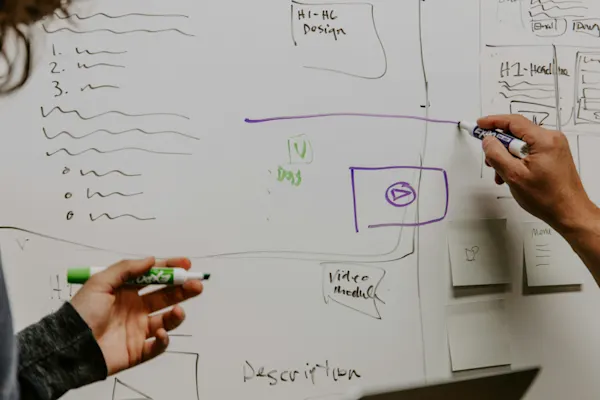
Family mediation provides a structured, cooperative approach to resolving parenting arrangements outside the adversarial court system. This process empowers parents to develop customized solutions regarding parenting time, decision-making authority, and financial support while maintaining control over outcomes that will shape their children's lives for years to come.
Our specialized family mediators combine legal knowledge, child development expertise, and conflict resolution skills to help parents navigate complex emotional terrain while creating practical, legally sound agreements. We focus on facilitating productive conversations that transform potential conflicts into opportunities for collaborative problem-solving centered on children's best interests.
Creating Developmentally Appropriate Schedules
Effective parenting time arrangements balance numerous factors including children's ages, developmental needs, parents' work schedules, geographic proximity, and established relationships. Our mediators help parents develop schedules that:
Reflect children's developmental stages and changing needs over time
Accommodate parental work obligations and logistical constraints
Maintain children's connections to schools, activities, and social circles
Include appropriate provisions for holidays, school breaks, and special occasions
Address transitions between homes in ways that minimize stress for children
Incorporate flexibility while providing necessary structure and predictability
We help parents move beyond standardized schedules to create arrangements that genuinely serve their children's needs while respecting both parents' relationships and practical realities.
Addressing Special Circumstances in Parenting Time
Many families have unique circumstances requiring specialized parenting time considerations. Our mediators have extensive experience addressing complex situations including:
Infants and very young children with attachment needs
Children with special needs or medical conditions
Long-distance parenting arrangements
Parents with demanding careers or irregular work schedules
Blended family dynamics and step-parent relationships
Relocation considerations and geographic transitions
Safety concerns requiring supervised visitation or exchange provisions
We help parents develop creative, workable solutions that address these challenging circumstances while maintaining focus on children's well-being.
Transitioning Between Homes: Practical Considerations
The logistical aspects of transitions between parents' homes often become sources of conflict when not carefully addressed. Our mediators help parents establish clear protocols regarding:
Exchange locations, timing, and transportation responsibilities
Communications before, during, and after transitions
Transfer of children's belongings, medications, and school materials
Documentation of important information between households
Management of schedule changes and unexpected situations
Boundaries and behavior expectations during exchanges
Technology for maintaining connections when children are with the other parent
By addressing these practical matters proactively, we help parents create systems that reduce friction while supporting children's smooth transitions between homes.

Types of Decision-Making Arrangements
Parental decision-making encompasses educational, medical, religious, and extracurricular activity decisions affecting children's development and well-being. Our mediators help parents explore various decision-making structures including:
Joint decision-making requiring mutual agreement on major issues
Divided decision-making with each parent having authority in specific domains
Consultation requirements that preserve one parent's final authority while ensuring meaningful input from the other
Tie-breaking mechanisms for situations where parents reach impasse
Progressive decision-making arrangements that evolve as co-parenting relationships develop
We help parents select approaches aligned with their communication patterns, expertise in various domains, and capacity for effective collaboration.
Effective Co-Parenting Communication Frameworks
Successful co-parenting requires workable communication systems regardless of the formal decision-making structure. Our mediators help establish:
Information-sharing protocols regarding school, healthcare, and activities
Communication methods and frequency expectations
Frameworks for presenting options and exchanging perspectives before decisions
Documentation requirements for important decisions
Parameters for involving professionals such as teachers, healthcare providers, or therapists
Emergency notification procedures and urgent decision protocols
These communication frameworks create transparency while reducing opportunities for misunderstanding or conflict.
Involving Children Appropriately in Decisions
As children mature, their voice in decisions affecting their lives becomes increasingly important. Our mediators help parents develop age-appropriate approaches for:
Gathering children's input on activities, educational opportunities, and preferences
Balancing children's expressed wishes with parental guidance and authority
Protecting children from inappropriate decision-making pressure or parental alignment
Creating appropriate boundaries around children's involvement
Supporting children's growing autonomy while maintaining parental responsibility
These balanced approaches respect children's perspectives while preserving parents' ultimate responsibility for major decisions.

Beyond Guidelines: Comprehensive Financial Planning
While state guidelines provide starting points for child support calculations, mediation allows development of comprehensive financial arrangements addressing children's actual needs. Our mediators help parents consider:
Direct payments between parents for basic support
Division of responsibility for specific expenses such as education, activities, and healthcare
Cost-sharing arrangements for extraordinary expenses
Contribution to savings for future needs such as higher education
Tax considerations and benefit optimization
Financial review procedures as circumstances change
Documentation and reimbursement procedures
This comprehensive approach ensures children's needs are met while creating transparency and fairness for both parents.
Creative Solutions for Complex Financial Situations
Many families have financial circumstances that standard child support guidelines don't adequately address. Our mediators help develop solutions for situations including:
Self-employed parents with variable income
Parents with substantial non-salary compensation such as bonuses or equity
Shared or nearly equal parenting time arrangements
Children with special needs requiring extraordinary support
High-income families whose needs exceed standard guidelines
International or multi-jurisdictional situations
College and post-secondary education funding
We facilitate data-driven discussions about these complex situations while helping parents develop customized approaches that serve children's needs equitably.
Financial Transparency and Accountability
Effective financial arrangements require ongoing transparency and clear accountability mechanisms. Our mediators help establish:
Financial disclosure requirements and documentation
Expense tracking and reporting systems
Receipts and verification procedures
Payment methods and timing expectations
Annual review processes for adjusting support as needed
Dispute resolution mechanisms for financial disagreements
These systems create mutual trust regarding financial matters while providing clear frameworks for addressing changes over time.
Comprehensive Documentation
Successful parenting arrangements require thorough documentation that addresses interrelated aspects of parenting time, decision-making, and financial support. Our mediators help develop:
Detailed parenting plans incorporating all agreed-upon arrangements
Supporting documentation for court filing when required
Clear, unambiguous language that prevents future misinterpretation
Implementation timelines and transition plans
Procedures for reviewing and modifying arrangements as children develop
This comprehensive documentation creates shared understanding while providing necessary structure for successful co-parenting.
Future-Focused Flexibility
Children's needs evolve continuously throughout development, requiring parenting arrangements that can adapt appropriately. Our mediators help incorporate:
Age-based transitions and schedule adjustments
Review intervals for reassessing arrangements as children mature
Decision-making adjustments for different developmental stages
Procedures for addressing major life changes such as relocations
Mechanisms for modifying arrangements without returning to court
This forward-looking approach creates stability while acknowledging the inevitability of change throughout childhood and adolescence.
Conflict Resolution Mechanisms
Even the most carefully crafted parenting arrangements occasionally require adjustments or interpretation. Our mediators help establish:
Communication procedures for addressing emerging concerns
Graduated conflict resolution approaches starting with direct discussion
Return-to-mediation provisions before court involvement
Parenting coordination options for high-conflict situations
Parameters for involving other professionals when specialized expertise is needed
These conflict resolution mechanisms help parents address future disagreements constructively while minimizing children's exposure to parental conflict.

Initial Consultation and Assessment
Our process begins with thorough assessment of your family's unique circumstances, parenting strengths, areas of disagreement, and specific goals. This initial phase helps identify priority issues, necessary information gathering, and appropriate mediation structure for your situation.
Effective mediation requires shared understanding of relevant information including children's schedules, developmental needs, parents' work obligations, financial circumstances, and practical constraints. Our mediators help organize this information systematically while facilitating exploration of various options for addressing each aspect of your parenting arrangements.
Structured Negotiation Sessions
In our focused mediation session, our mediators guide productive discussions addressing parenting time, decision-making, and financial support. We maintain balanced participation, ensure all concerns receive attention, and help identify creative solutions that address both parents' priorities while focusing primarily on children's needs. While most matters are resolved in a single session, additional sessions are available when needed for more complex situations.
Documentation and Implementation
Once you've reached agreement on key issues, our mediators help document your decisions in clear, comprehensive parenting plans suitable for court filing when required. We also assist with developing implementation timelines, transition strategies, and communication frameworks that support successful execution of your agreements.
Child-Centered Focus
Mediation keeps children's needs at the center of the conversation while minimizing their exposure to parental conflict. Research consistently demonstrates better outcomes for children whose parents develop cooperative arrangements through mediation rather than adversarial litigation.
Preservation of Co-Parenting Relationships
The mediation process establishes communication patterns and problem-solving approaches that support ongoing co-parenting. By creating positive precedents for addressing disagreements, mediation helps parents develop functional relationships that benefit children throughout their development.
Cost and Time Efficiency
Compared to litigation, mediation typically requires significantly less financial investment while reaching resolution more quickly. These efficiencies allow parents to devote more resources directly to children's needs rather than to legal proceedings.
Greater Compliance and Durability
Parents who develop arrangements through mediation demonstrate substantially higher compliance with agreements and less frequent returns to court compared to those with litigated outcomes. This increased durability creates stability for children while reducing ongoing legal expenses.
Privacy and Emotional Well-Being
Mediation provides a confidential environment for addressing sensitive family matters outside the public courtroom. This privacy protection, combined with mediation's collaborative approach, reduces emotional trauma for all family members compared to adversarial proceedings.

Our specialized family mediators bring extensive experience in parenting matters combined with thorough understanding of child development, family dynamics, and relevant legal frameworks. We maintain unwavering focus on children's best interests while helping parents develop practical, workable arrangements that respect both parents' roles and relationships.
We recognize that effective co-parenting arrangements must extend beyond legal compliance to address the practical and emotional realities of raising children across households. Our mediation approach integrates legal knowledge with psychological insight and practical wisdom, helping parents create truly functional systems that support children's healthy development despite family transitions.
Contact us today to schedule an initial consultation regarding mediation for parenting time, decision-making, and child support arrangements. We're committed to helping your family develop cooperative solutions that serve your children's best interests while preserving parents' dignity and relationships.













